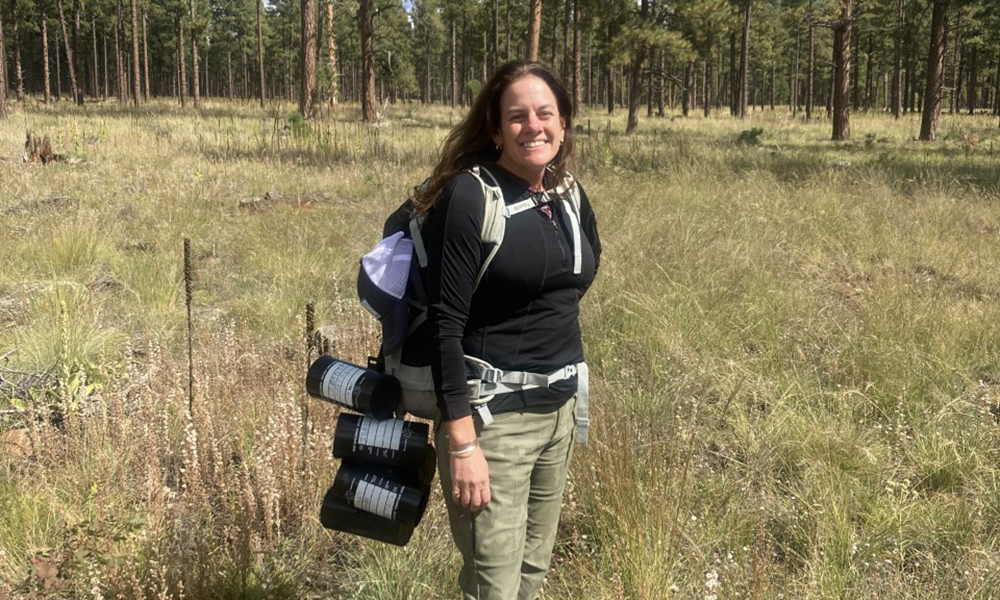Research Leads to Student Connection

There are many common threads among Helen Poulos’ 2023 publications—exploring how the world heals itself from climate change, noting how fire can be a cleansing and rejuvenating tool in the environment, and predicting which plants will thrive in the Anthropocene.
“What I am really trying to understand is how climate change and wildfire is changing our landscapes. Because of fuel buildup in forests from decades of federal fire suppression and the hotter and dryer conditions caused by climate change we are seeing all of these big wildfire events across the West in recent years,” Poulos said.
Another important commonality is who Poulos is working with. In three of her five 2023 publications, current Wesleyan students and graduates are co-authors on the work, playing key roles in increasing the body of knowledge coming out of her lab.
Becky Velle ’22 and Jordan Green ’23 explored lake use and manger knowledge of aquatic invasive species in New Hampshire for the Journal of Nature Conservation. Miles Brooks ’20 looked at plant-pollinator interactions in northern California coastal habitats for Natural Areas Journal. Gabe Snashall ’21 was co-author on a paper exploring the effects of wage inequality and labor insecurity among small palm farmers in Indonesia in Agriculture and Human Values.
Poulos also wrote about pine tree regeneration after wildfires in the American Southwest for Science of the Total Environment, and the reproductive capacity of a species of endangered grass in the northern Sierra Madre, for Natural Areas Journal.
“My research is trying to understand the changes (to the climate) and how vegetation is responding,” Poulos said.
Given the nature of Wesleyan’s commitment to experiential learning, it’s not uncommon for students to work closely with professors on important research. Poulos has found that, in her field of research, students can make valuable contributions. They are smart, work hard, and with some guidance, can help in profound ways, often as part of senior thesis projects in Environmental Studies. “I’ve always had students working with me throughout the whole research process, from study design and execution to analysis and synthesis,” Poulos said.
Each summer, Poulos travels to the Southwestern US and northern Mexico with students and works on site, occasionally in mountainous areas, staying in back country cabins and campsites to characterize how wildfires are changing our landscapes today. Bringing students in the field to work in far flung research sites can be a shock to some students, but it also opens the opportunity for students to experience nature and field-based scientific inquiry. “These are skills that can only be learned by doing,” Poulos said.
Many of her students go on to do important environmental work. Other use their work with Poulos as an important point in their Wesleyan education and go on to work in other areas. Still, as Poulos spends time in the field, carefully documenting what’s happening to nature with students at her side, an important thought lingers: “What we do here resonates in the outside world,” Poulos said.
In recognition of her scholarship, Poulos has been named Distinguished Professor of the College of the Environment and Environmental Studies at the rank of Associate Professor.
“I am pleased that Helen Poulos was selected by the faculty in the College of the Environment and the department of Earth and Environmental science for a new distinguished professorship. Her research in the long-term impacts of forest fires in large national forests bordering the US and Mexico uses satellite imagery, field work, and laboratory-based analyses. Students who work with Professor Poulos have exciting opportunities to learn a diverse array of scientific methods for studying fire and drought-related changes in the Southwest while working with her and her international team of collaborators,” said Janice R. Naegele, Dean of the Natural Sciences and Mathematics.

